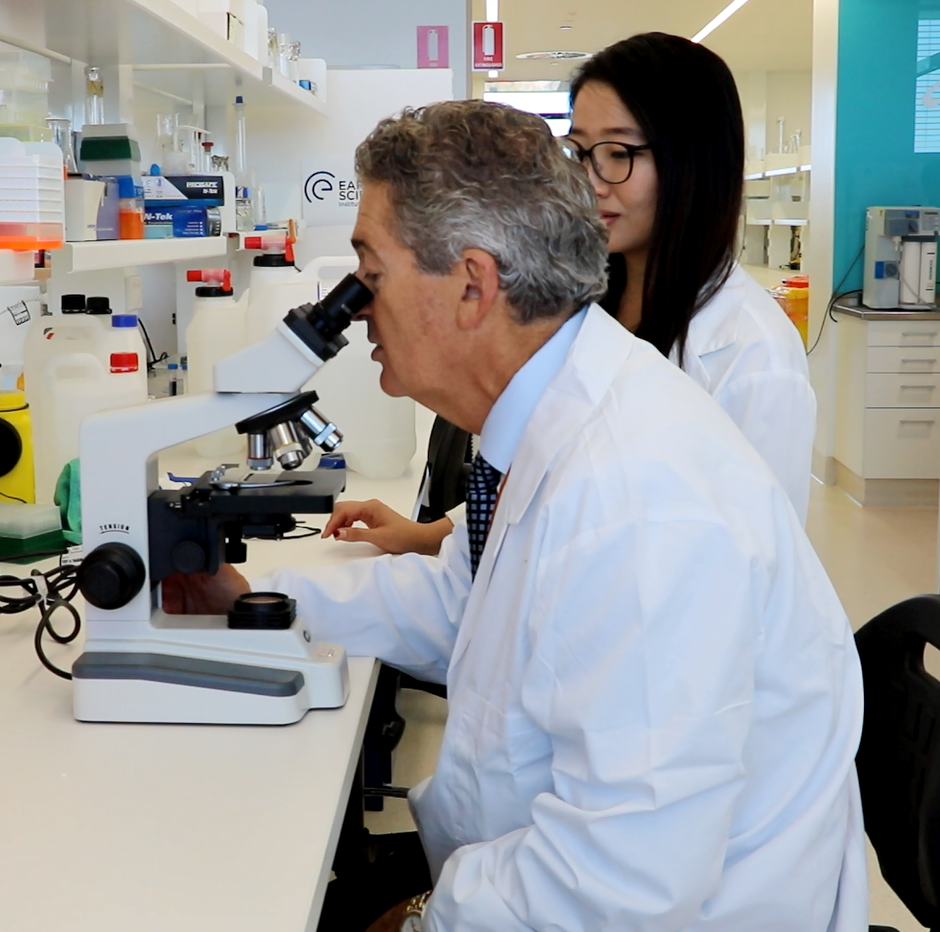
Understanding The Link Between Hearing and Cognition to Develop New Treatments for Hearing Loss
The dedicated Brain and Hearing team at Ear Science Institute includes researchers from otolaryngology, psychology, audiology, engineering, computer science, molecular and cellular sciences.
This multidisciplinary team focuses on translating the findings of research into clinical practice through developing new treatment and management protocols, understanding barriers to effective treatment, testing and creating devices, developing surgical techniques and epidemiology.
Hearing Loss & Dementia
This project investigates the association between hearing loss and dementia. A critical study is to determine whether hearing aids can improve cognitive skills. It is important to maintain cognitive skills, as a decline of these is an important risk factor for dementia.
In 2021 we are running a randomised, controlled clinical trial, conducted in our Lions Hearing Clinics, aimed at determining whether hearing loss intervention can delay or arrest cognitive decline.
Hearing Loss Epidemiology
Studies of hearing loss in the population provide valuable information on the prevalence (total number) and incidence (new cases) of hearing loss and related conditions. These studies also determine risk factors and how they may be related to other health conditions. They provide policymakers and health providers with data on managing and treating hearing loss and how to prioritise research.
Ear Science is involved in two major hearing loss epidemiology studies with a high international reputation. Both have been running for many decades and have produced impact research publications and guided medical policy and practice.
The Busselton Health Study focuses on Baby Boomers, people born in the 20 years post World War II (1945 to 1965). These people are currently in a stage of life where significant changes in health status can be measured. After concluding the first phase of collecting data from 5100 participants in 2015, the second phase is now retesting all the participants. This data will help uncover the incidence and progression of diseases and disorders. Ear Science is involved with many collaborators in studying associations between hearing loss and other conditions, e.g., cognition, heart disease, diabetes.
The Raine Cohort Study commenced in 1990 and has followed the health of almost 3000 newborns and their families since then. Ear Science researchers have focused on hearing loss and ear disease and their relation to development, language, and behaviour.
Hearing Loss Rehabilitation
An essential part of a first-class hearing clinic is that all advice, recommendations, procedures and care are supported by scientific evidence.
As a research institute, we dedicate considerable resources to quality improvement, assessing outcomes and testing new devices and procedures.
Lions Hearing Clinic and Ear Science Implant Clinic audiologists and surgeons are key participants in this research, maximising the ability to transfer new knowledge to clinical practice.
Our research activities include the investigation and development of new models of care, especially to those in rural and remote areas, speech perception testing, cognition, bone conduction hearing aids, handling skills and quality of life.
Hearing & Mental Health
Hearing loss and mental health are often linked. Research has shown that hearing loss places a significant burden on many aspects of life. Research from Ear Science and others has demonstrated that children & adults with hearing loss have a greater risk of mental health problems, particularly increased anxiety.
Hearing & Ageing
It’s a well-known fact that, as we get older, we tend to experience some level of decline in our cognitive ability. For some of us, it may be mild, and for others, more serious. Although a normal part of ageing, typical issues tend to pop up, including forgetting details, taking longer to learn new things, and difficulty concentrating or focusing.
We might not be able to stop this decline in our brain, but recent and emerging studies tell us that we may be able to slow it down by understanding the link between hearing loss and brain fitness. We are researching if hearing loss can be associated with overall cognitive decline, including developing Alzheimer’s disease and/or dementia.

